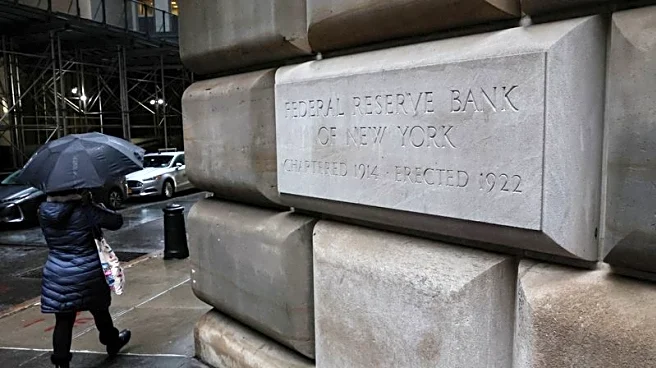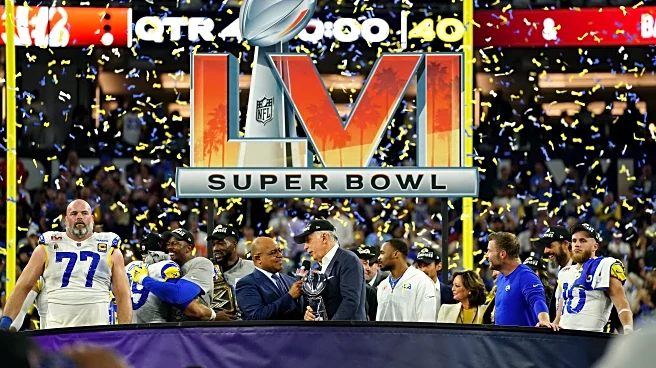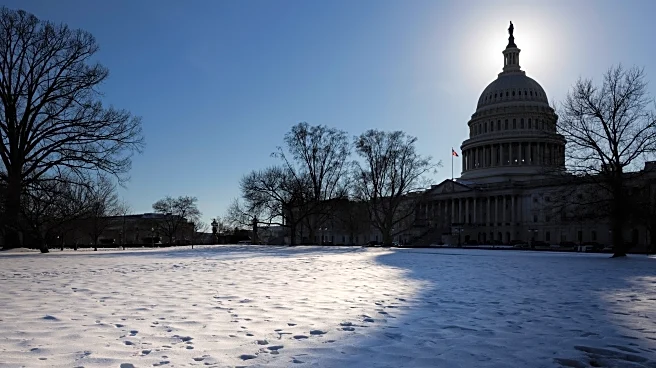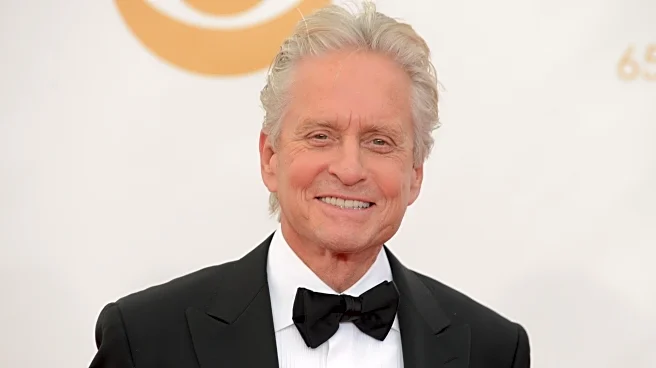What's Happening?
Roseanne Barr has expressed dissatisfaction with ABC's decision to lift the suspension of Jimmy Kimmel Live! after just five days. Barr, whose show Roseanne was canceled in 2018 following a racist tweet about former Obama advisor Valerie Jarrett, claims a double standard is at play. She argues that while she faced severe consequences for her actions, Kimmel, who has previously appeared in blackface, was quickly reinstated. Barr's comments come in the wake of Kimmel's controversial remarks about the MAGA response to the killing of Charlie Kirk, which led to his show's temporary suspension. Barr believes Kimmel's lack of support for her during her controversy has contributed to his current situation.
Why It's Important?
The situation highlights ongoing debates about accountability and forgiveness in the entertainment industry. Barr's criticism underscores perceived inconsistencies in how media figures are treated for controversial actions. The swift reinstatement of Kimmel's show, despite his past use of blackface, raises questions about the criteria used by networks to determine appropriate responses to public backlash. This incident also reflects broader societal discussions about race, media responsibility, and the influence of political affiliations on public perception and corporate decisions.
What's Next?
As Jimmy Kimmel Live! returns to air, it remains to be seen how audiences and stakeholders will react. The controversy may prompt further discussions within the entertainment industry about standards for accountability and the role of public opinion in shaping network decisions. Additionally, the incident could influence future negotiations and policies regarding media ownership and content regulation, especially given the involvement of major broadcasters like Nexstar and Sinclair.
Beyond the Headlines
The incident raises ethical questions about the balance between free speech and responsible broadcasting. It also highlights the potential impact of political pressures on media decisions, as seen in the FCC's involvement and the subsequent actions by broadcasters. The broader implications for media regulation and the influence of political figures on entertainment content could lead to long-term shifts in industry practices.












